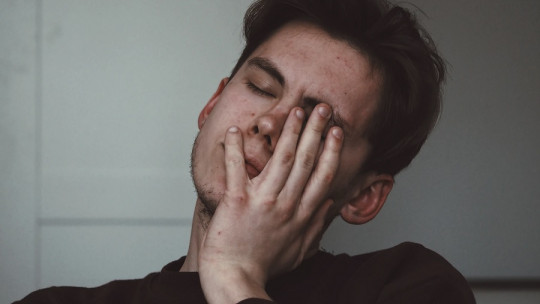
The constant desire to buy may be due to emotional problems or psychological disorders such as anxiety disorder and depression.
In general, what this type of buyer wants is related to physical image, and these types of phenomena go hand in hand with feelings of loneliness, sadness and frustration.
Buying constantly gives these people momentary happiness, even when buying things they don’t need; They even go into debt for it, and suffer feelings of guilt as a consequence.
Understanding the tendency to buy compulsively
This disorder is known as onitomania; It is characterized by a lack of impulse control. This disease is sometimes considered an addiction when leads to purchases that are not out of necessity.
These people have difficulties adapting to reality, a low tolerance for frustration and have a need for immediate gratification to have intense sensations of pleasure from novelty.
This addiction can cause serious conflicts with your partner, family and even at work. It can lead to the need to go into debt, to resort to telling lies or sometimes to committing crimes (for example, through fraud or theft) due to the need to have easy and quick money to be able to satisfy the impulse to buy and buy.
These people often spend more than they have and also suffer from a void that they believe they can alleviate by shopping. These kinds of experiences can produce significant feelings of guilt, and self-esteem will gradually be eroded.
These people have difficulties adapting to reality, a low tolerance for frustration and They have a need for immediate gratification to have intense sensations of pleasure from novelty. This pattern of behavior also serves to avoid and evade conflicts instead of asking for help.

This lack of control has serious consequences, since we can say that it is a “social addiction” since it also seeks to fill a need to be physically attractive and competitive. It can cause social, work and family isolation.
These purchases, by relieving the subject’s tension and generating a lot of pleasure in the moment, prevent the person from thinking that later the feelings of guilt due to regret and self-reproach are difficult to manage and tolerate. thus falling into a vicious circle that is difficult to overcome.
The dependence on buying and your inability to value yourself thus affects your self-esteem. It can cause social, work and family isolation. When purchasing, the individual may feel embarrassed and feel compelled to destroy or hide the purchased items.
Context matters
It is also worth mentioning that in our society consumption is central, but in this time of pandemic, Online shopping has facilitated the increase in this type of addiction, since the acquisition of various objects is much easier.. Lockdown helped to make multiple purchases to control anxiety and feelings of loneliness and those linked to depression.
What can be done?
It is important help these people properly set boundaries. For example, people who in their childhood have lived in a very “pampered” way, growing up in an environment where all their whims have been attended to immediately, end up internalizing this pattern of behavior and even see it as normal and natural.
To avoid being a compulsive buyer, you should avoid shopping during depression. Maybe Make a shopping list and follow it to the letter, valuing only what you need.
It is also key to recognize and value the budget sufficient to cover only these needs; It is important that these people begin to value what they have.
To avoid compulsive buying, it is necessary to learn not to think for too long about acquiring unnecessary objects. One way to avoid this compulsion is plan purchases, make a plan of when and where to do it.
On the other hand, it is highly recommended to go to a psychotherapy specialist who helps the person understand and control conflicts and negative behaviors.
In therapy it is possible to acquire self-control strategies and achieve and learn to reduce behaviors that are harmful and cause anxiety.. The psychologist also helps identify the causes that produce the impulses to buy unnecessary things and look for other alternatives that help counteract these factors.
When and how can we realize that we have this addiction?
A key piece of information to recognize this psychological alteration is when objects are purchased that are not needed or are purchased in an excessive manner that exceeds economic possibilities.
It’s also important to keep these warning signs in mind:








